Learn how the Decalogue in the Bible shapes ethics and morality across cultures, and discover its profound impact on modern society…
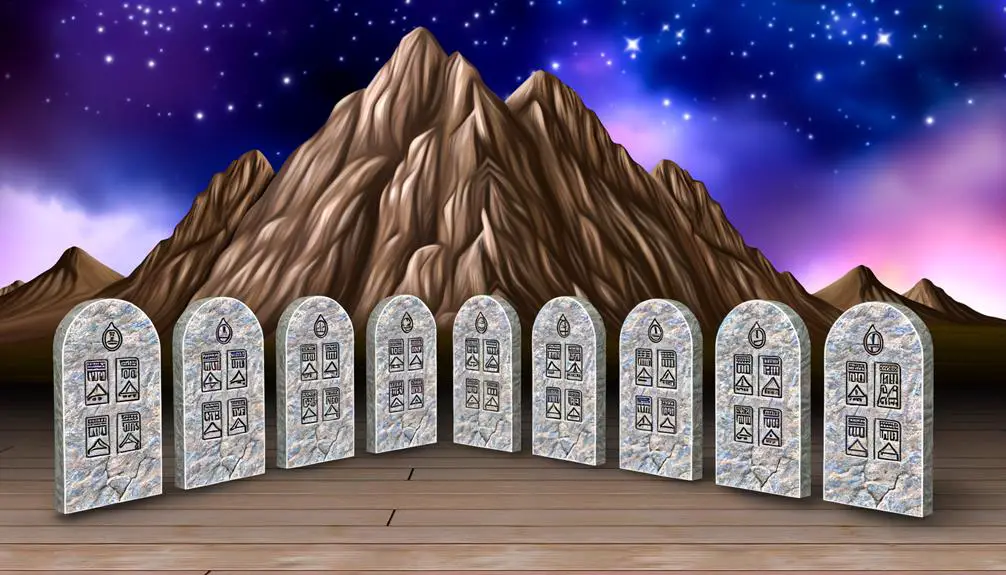
Decalogue in the Bible
In the Bible, the Decalogue, commonly known as the Ten Commandments, is a pivotal legal and theological text found in Exodus 20:1-17 and Deuteronomy 5:4-21. You'll find that it not only prescribes a set of obligations but also explores complex themes of morality, ethics, and human relationship with the divine. These commandments have varied interpretations across different cultures and religious traditions, each coloring the Decalogue with unique ethical and moral nuance. The implications of these ancient laws continue to influence contemporary socio-legal norms, addressing issues like justice, integrity, and respect for life. Further exploration might reveal deeper insights into how these principles shape modern ethical perspectives.
Key Takeaways
- The Decalogue, also known as the Ten Commandments, is found in Exodus 20:1-17 and Deuteronomy 5:4-21.
- It serves as a foundational legal and ethical code in ancient Israelite society.
- The commandments address themes of morality, worship, and social behavior, influencing both religious and secular laws.
- Interpretations of the Decalogue vary widely among different cultures and religious groups.
- It continues to impact modern ethical discussions and legal systems, guiding personal and societal decisions.
Historical Context of the Decalogue
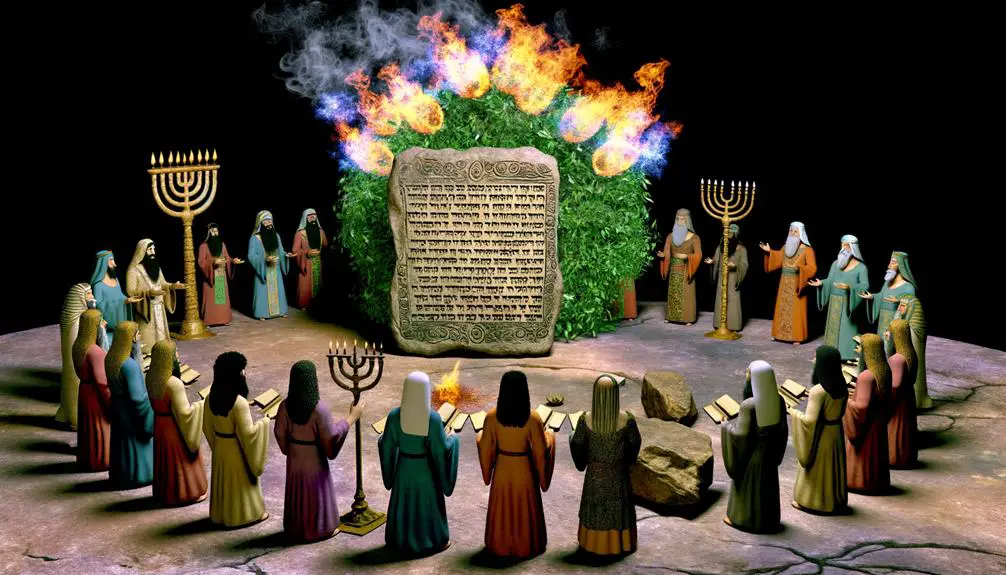
While delving into the historical context of the Decalogue, it's important to recognize that it emerged during a transformative period in ancient Israelite society, fundamentally shaping their legal and ethical systems. As you explore this era, you'll see that ancient inscriptions play a pivotal role in understanding the environment in which the Decalogue was conceived. These inscriptions provide not just linguistic insights but also socio-political context that highlight the complexities of covenant-making in the ancient Near East.
The covenant context of the Decalogue is particularly important. It didn't exist in a vacuum. Rather, it reflects a common legal and religious framework of the time, where divine laws were mediated through covenants between deities and leaders or communities. This framework can be traced back to earlier traditions and similar legislative texts found across Mesopotamia and the broader Levantine region. The parallels in these texts and the Decalogue underscore a shared cultural and religious milieu that valued legal codification as a means of societal regulation and divine interaction.
Understanding these elements, you're better equipped to appreciate how the Decalogue was not just a set of moral imperatives but a carefully constructed component of ancient Israelite identity formation and governance.
Biblical Passages and Sources
You'll find the Decalogue primarily located in two significant sections of the Bible: Exodus 20:1-17 and Deuteronomy 5:4-21. These passages not only establish the foundational laws but also explore key themes such as covenant, obedience, and the nature of divine authority. By examining these texts, you can discern how the Decalogue functions both as a legal code and as a theological statement within the broader biblical narrative.
Location in Scriptures
The Decalogue, commonly known as the Ten Commandments, is primarily recorded in two pivotal sections of the Bible: Exodus 20:1-17 and Deuteronomy 5:4-21. You'll find that the scriptural placement of these passages within their respective books isn't arbitrary. The chapter divisions, which were later additions for easier reference, strategically position the Decalogue at points emphasizing covenant and law. In Exodus, the Decalogue follows Israel's dramatic escape from Egypt, highlighting its foundational role in their new identity as a nation under God. Conversely, in Deuteronomy, it's reiterated as part of Moses' final address, reinforcing these commands as perpetual standards for Israel's conduct. These placements underscore the Decalogue's enduring significance in the biblical narrative and its theological scaffolding.
Key Themes Explored
Having examined where the Decalogue is located in the Scriptures, let's now explore the key themes that these biblical passages address. The Decalogue isn't just a set of rules; it's a profound expression of moral authority and covenant significance, deeply rooted in the theological and ethical foundations of Judeo-Christian tradition.
- Moral Authority: The commandments assert a divine standard for behavior, emphasizing accountability to God's moral order.
- Covenant Significance: They underscore the relationship between God and His people, marking a covenant that is both communal and personal.
- Universal Ethical Principles: Beyond religious confines, these commandments promote universal values such as truthfulness, respect, and justice.
These themes aren't merely historical; they continue to influence ethical discussions and legal principles worldwide.
Interpretation Variations

Across various cultures and religious denominations, interpretations of the Decalogue differ markedly, reflecting diverse theological emphases and historical contexts. You'll find that comparative theology offers a rich framework for understanding these variations. Scholars in this field compare and contrast the ways different religious communities understand the Ten Commandments, revealing how each tradition emphasizes aspects that resonate with its core beliefs and practices.
For instance, in Jewish traditions, the commandments are often seen not only as laws but as a perpetual covenant between God and the people of Israel. In contrast, many Christian interpretations tend to emphasize the moral and spiritual implications of the commandments, viewing them as a universal ethical code applicable to all humanity. These differences underline the diverse theological priorities within each tradition.
Moreover, modern interpretations of the Decalogue reflect contemporary values and philosophical inquiries. You'll observe how recent theological discourse often focuses on the applicability of these ancient laws in today's diverse and pluralistic society. Questions about the relevance of Sabbath observance or the prohibition against idolatry are explored in light of modern realities, such as digital idolatry and the non-stop nature of modern work culture, revealing a dynamic interplay between ancient texts and contemporary ethical challenges.
Ethical Implications Today
Today's ethical landscape challenges us to reconsider the relevance of the Decalogue's principles in addressing contemporary moral dilemmas. You're traversing a world where questions of right and wrong are intertwined with advances in technology, shifts in cultural norms, and complex global interactions. The Decalogue, or Ten Commandments, often seen as an archaic list, surprisingly holds profound implications for modern ethical debates when you peel back the layers.
To spark your thought process, consider these key areas where the Decalogue intersects with modern ethical issues:
- Social Justice: How do the commands to not steal or bear false witness inform your understanding of fairness and equality in society today?
- Truth and Integrity: In an era of fake news and alternative facts, how relevant is the commandment against bearing false witness?
- Respect for Property and Life: Does the command against stealing and killing resonate with current issues like digital piracy or debates over capital punishment and euthanasia?
Each of these points urges you to explore deeper into how these ancient laws can guide your personal and societal decisions. The modern relevance of the Decalogue isn't just about adherence to rules; it's about fostering a framework that strengthens the ethical fabric of society, ensuring a just system where integrity and respect are paramount. This investigation isn't just vital for constructing a moral society that can navigate the complexities of 21st-century challenges.
Influence on Legal Systems
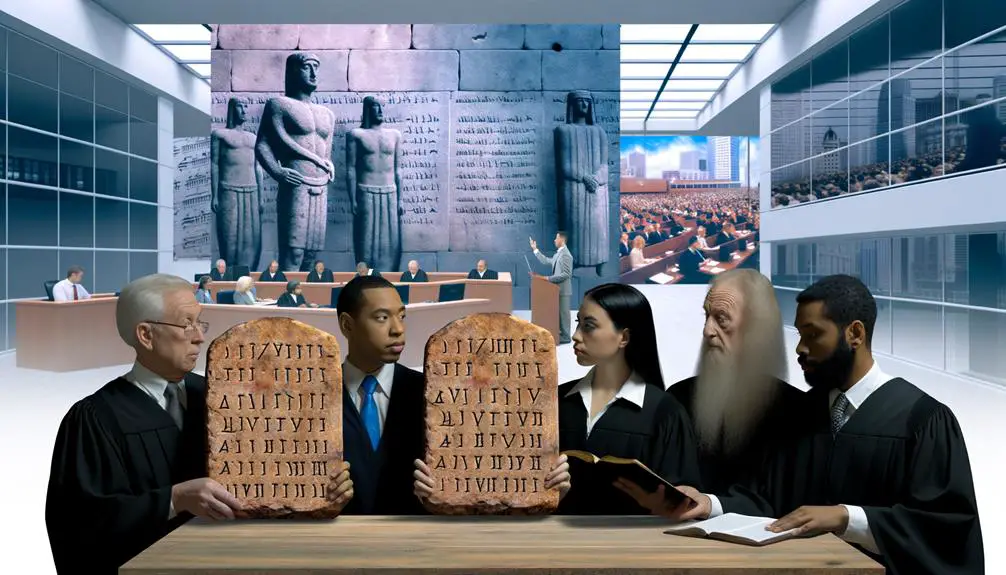
The Decalogue's impact on contemporary legal systems is profound, shaping laws and judicial principles that govern societal conduct. As you explore its influence, you'll notice prominent judicial parallels and modern adaptations that echo through the statues and codes of today's societies. Historically, the Decalogue laid foundational guidelines that transcended religious boundaries and seeped into civil ordinances. For example, prohibitions against theft and murder in the Decalogue find their secular counterparts in nearly all modern legal systems, underpinning the criminal laws that dictate the basic moral fabric of society.
Furthermore, the principle of fairness, exemplified in the commandment to not bear false witness, has been integral in shaping the procedural aspects of law, particularly in the areas of evidence and witness testimony. This ensures that justice is not only done but seen to be done. The influence extends to aspects of property rights, contractual obligations, and personal conduct within legal frameworks, demonstrating a clear line of continuity from ancient ethical mandates to contemporary legal requirements.
Such adaptations aren't mere historical footnotes but are actively interpreted in modern legal contexts, illustrating the enduring relevance of the Decalogue in informing and refining judicial philosophies and legal practices worldwide. By understanding these connections, you're better equipped to appreciate the intricate ways in which ancient texts continue to influence modern legal systems.
Decalogue in Different Cultures
Exploring the Decalogue's adoption across diverse cultures reveals its malleable interpretation and integration into various ethical and legal frameworks. You'll find that the global influence of the Decalogue transcends simple religious adherence, morphing to fit the moral and societal norms of different populations. This adaptability has led to significant cultural variations in how these commandments are perceived and practiced around the world.
The Decalogue's integration into various cultures isn't just about religious observance; it's about forming a foundational moral compass that resonates with broader human values. These variations demonstrate a dynamic exchange between the Decalogue and cultural identities, where each culture tailors its teachings to fit local traditions and societal needs.
To highlight the breadth of the Decalogue's cultural integration, consider these examples:
- Eastern Interpretations: In Eastern philosophies, the Decalogue might be seen less as a set of strict laws and more as moral guidelines, harmonizing with the flexible nature of moral reasoning in these cultures.
- Secular Adaptations: Some secular societies use the ethical principles of the Decalogue as benchmarks for civic behavior, stripping them of their religious connotations.
- Indigenous Incorporations: Various indigenous groups have blended the Decalogue with traditional spiritual beliefs, creating unique syncretic religious practices.
These examples underscore the Decalogue's robust adaptability and its enduring relevance across different cultural landscapes.
Philosophical Perspectives
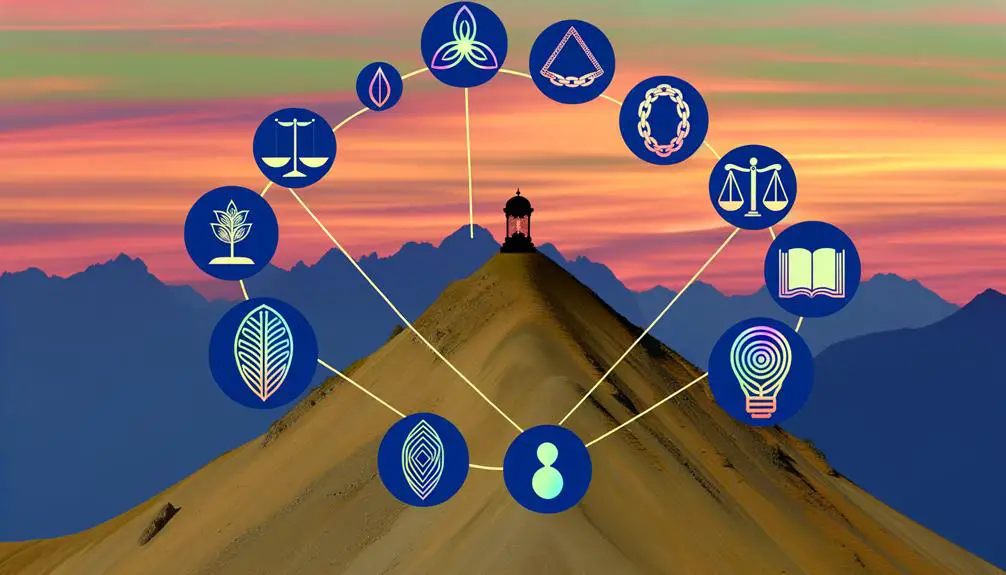
Delving into philosophical perspectives, you'll find that the Decalogue's ethical directives have been rigorously analyzed and debated, revealing deep insights into human moral reasoning. The Ten Commandments, as moral imperatives, raise significant questions about moral autonomy. When you consider the commandments, you're faced with the challenge of interpreting precepts that seemingly dictate behavior. This involvement of divine command theory in ethics prompts an intriguing dialogue about the extent to which these commandments support or constrain personal moral autonomy.
Philosophers have often juxtaposed the Decalogue's prescriptive nature against modern concepts of ethics, which emphasize personal moral decision-making. This tension highlights an essential existential reflection: are individuals authentically free if their moral choices are guided by external, seemingly absolute standards? This question becomes particularly poignant when reflecting on commandments that deal directly with moral and ethical behavior, such as 'Thou shalt not kill' or 'Thou shalt not steal.'
These commandments not only dictate actions but also implicitly shape the moral contours of a community. By adhering to these, you might find yourself wrestling with the balance between communal moral expectations and personal ethical beliefs. Therefore, the Decalogue serves as a profound starting point for exploring the intersection of divine morality and individual ethical agency.
Educational Uses and Impact
When you consider the role of the Decalogue in educational settings, you'll find that its integration into classroom morality discussions provides a foundational basis for exploring ethical judgments and decision-making processes. The historical curriculum integration of the Decalogue, on the other hand, offers students a lens through which they can assess the influence of religious texts on legal systems and societal norms. These educational practices not only deepen students' understanding of historical contexts but also enhance their ability to critically analyze contemporary moral issues.
Classroom Morality Discussions
Integrating discussions of the Decalogue into classroom settings can greatly enhance students' understanding of moral principles and their applications in various aspects of life. By examining these ancient commandments, you can foster a nuanced exploration of ethical questions which directly influence student perceptions. Utilizing debate formats, this approach encourages critical thinking and allows students to articulate their views in structured yet open-ended settings.
- Critical Thinking: Engages students in analyzing and questioning moral norms and values.
- Empathy Development: Facilitates understanding diverse perspectives through moral dilemmas presented by the Decalogue.
- Ethical Reasoning Skills: Enhances the ability to apply ethical principles in personal and societal contexts.
Such discussions can profoundly shape moral reasoning and interpersonal interactions among students.
Historical Curriculum Integration
Many educational systems have historically integrated the Decalogue to deepen students' understanding of ethical and moral development. This integration is part of broader Curriculum development efforts, where the focus is on imbuing moral reasoning alongside academic content. You'll see that Teaching methods vary widely, but the core goal remains consistent: to foster a well-rounded moral compass within students.
Era |
Teaching Method |
Impact on Curriculum |
|---|---|---|
1800s |
Direct Instruction |
Initial Integration |
Early 1900s |
Discussion & Analysis |
Deeper Ethical Engagement |
Mid-1900s |
Comparative Religious Studies |
Broadened Perspectives |
Late 1900s |
Case Studies |
Applied Ethics Focus |
2000s |
Interactive Digital Tools |
Enhanced Accessibility |
This table showcases how the integration evolved, reflecting changing educational priorities and methodologies.
Frequently Asked Questions
How Is the Decalogue Represented in Modern Art and Literature?
You'll be astounded by the sheer magnitude of sculptural interpretations and literary adaptations of these principles in modern art and literature, each creatively dissecting and re-envisioning timeless ethical guidelines with profound insight and ingenuity.
Are There Any Films or Documentaries Specifically About the Decalogue?
Yes, there are films and documentaries focusing specifically on the Decalogue. These cinematic interpretations explore themes through varied documentary styles, offering a detailed analysis that reflects their profound influence on cultural and ethical discussions.
How Do Atheists and Agnostics View the Decalogue?
You might find that atheists and agnostics view the Decalogue through lenses of moral relevance and historical interpretation, often seeing it as a cultural artifact rather than a divine mandate guiding their ethics.
What Are the Most Common Misconceptions About the Decalogue?
You might find it surprising that 70% of people misunderstand the Decalogue's historical evolution and cultural interpretations, often viewing it as static rather than dynamic through centuries of diverse religious and philosophical thought.
How Do Children Typically Learn About the Decalogue in Various Religions?
Children typically learn about religious rules through cultural transmission in religious education classes, where you'll find structured teachings that integrate these principles into broader ethical and spiritual lessons.

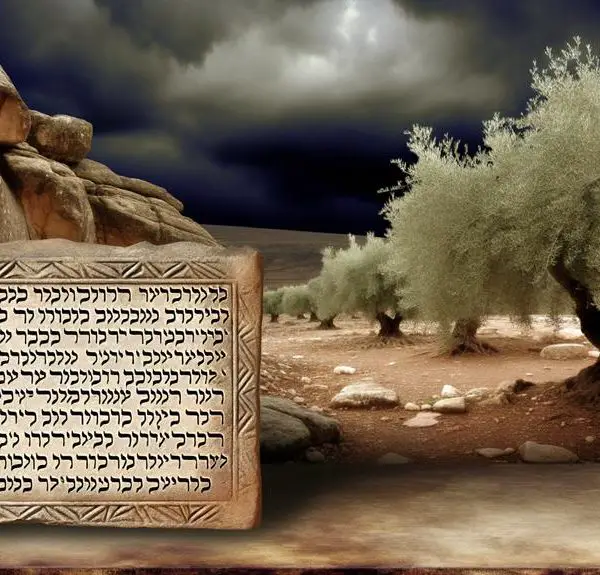

Sign up